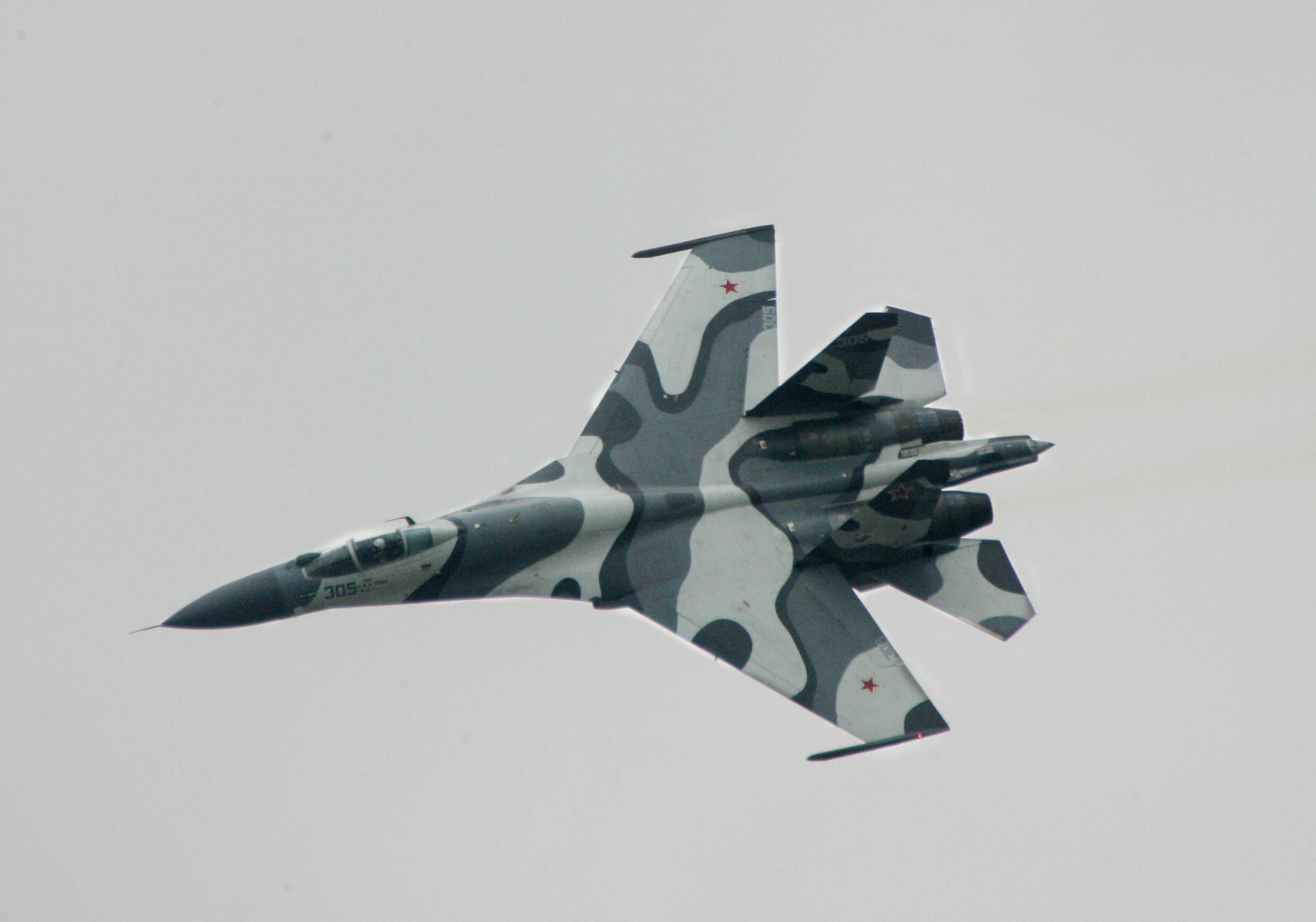
The U.S. has condemned the Russian air force for its "irresponsible" interception of an American reconnaissance aircraft over the Black Sea.
The U.S. Navy said one of its EP-3 Aries aircraft was flying in international airspace Monday when a Sukhoi Su-27 jet fighter made contact, flying extremely close to the American plane and endangering its crew.
A press release issued by the Navy's 6th Fleet said the Sukhoi Su-27 conducted "a high speed pass directly in front of the mission aircraft, putting at risk the pilots and crew." Having pulled away, the Navy said the fighter jet made a second pass, this time banking away while firing its powerful afterburners.
The statement said the EP-3 crew experienced turbulence from the first pass and "vibrations" from the second. The intercept lasted around 25 minutes.
According to the Navy Times, Pentagon spokesman Eric Pahon told reporters Monday, "They buzzed us." Pahon added,"They got a little too close… They engaged the afterburners and the whole aircraft shook."
The 6th Fleet said that the aircraft—operating as part of the Fleet Air Reconnaissance Squadron 1 operating from Souta Bay, Greece—"was operating in accordance with international law and did not provoke this Russian activity."
"While the Russian military is within its right to exercise within international airspace, this interaction was irresponsible," the statement argued. "We expect them to behave within international standards set to ensure safety and to prevent incidents," the 6th Fleet continued, adding: "Unsafe actions increase the risk of miscalculation and potential for midair collisions."
Intercepts between the two countries are common. Both Russia and the U.S.—as well as its NATO partners—fly missions close to Russia's borders while remaining in international airspace, while Russia does the same around U.S. and NATO territory. Most interceptions are not noteworthy.
"What made it unsafe was that they didn't establish radio contact," Pahon explained. "They came really, really close to our aircraft." He added, "Our aircraft was operating in international airspace conducting a routine mission, and the Russian aircraft came out of nowhere and did not one—but two passes—close to our aircraft."
Navy Times quoted Pentagon officials who said the EP-3's transponder—a device used to mark the aircraft's location and identify it to all air traffic controllers—was turned off throughout the mission.
The last time U.S. officials complained of a similarly unsafe interception was in January this year, The Wall Street Journal noted. In this case, a Russian jet flew within 5 feet of an American reconnaissance plane, also over the Black Sea.
Uncommon Knowledge
Newsweek is committed to challenging conventional wisdom and finding connections in the search for common ground.
Newsweek is committed to challenging conventional wisdom and finding connections in the search for common ground.
About the writer
David Brennan is Newsweek's Diplomatic Correspondent covering world politics and conflicts from London with a focus on NATO, the European ... Read more
To read how Newsweek uses AI as a newsroom tool, Click here.








